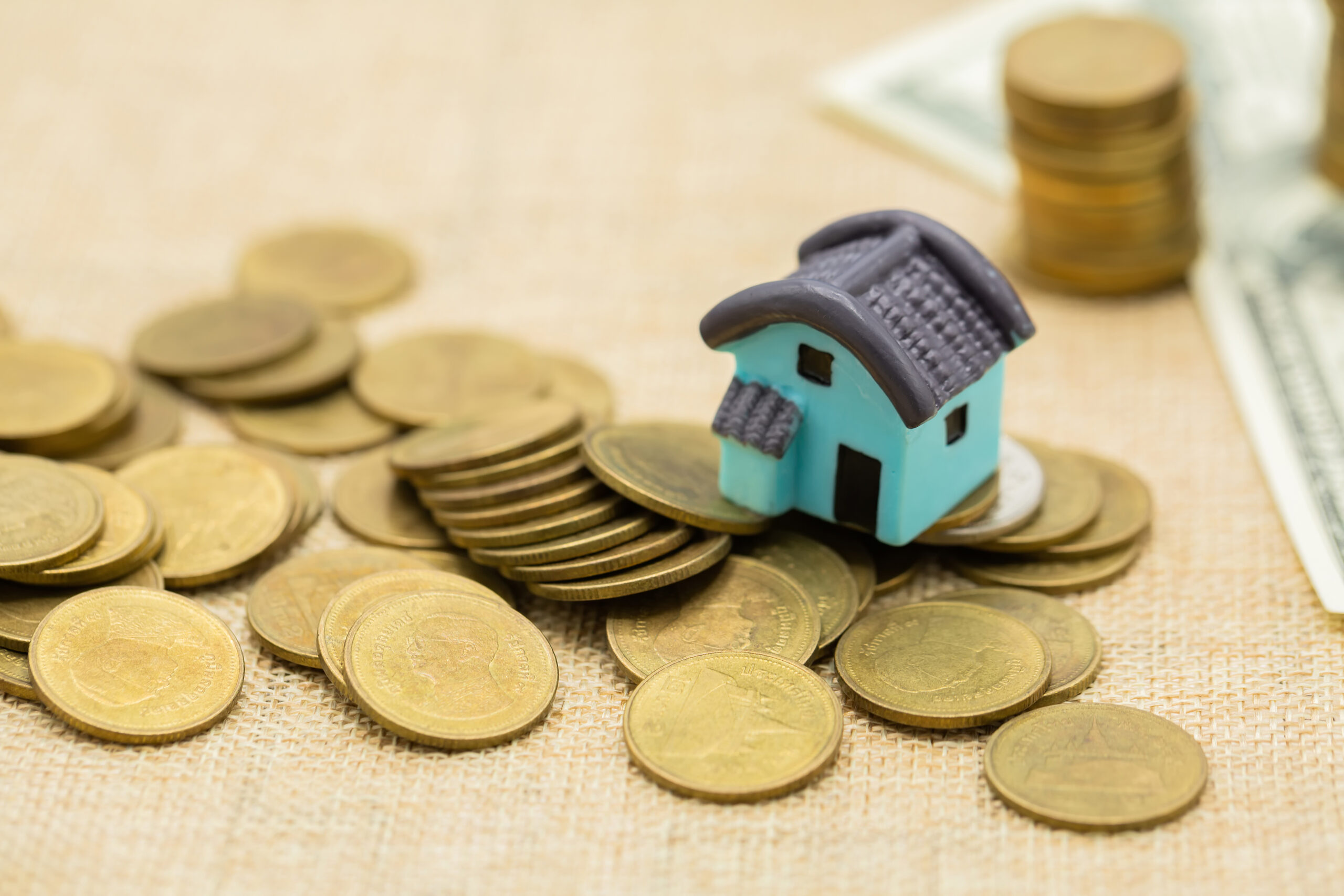If you’re a homeowner, you’ve probably heard of a Home Equity Line of Credit (HELOC). It’s a popular financial product that allows you to tap into the equity of your home to borrow funds.
While it seems like an easy solution for those looking to access cash quickly, it’s not the perfect fit for everyone. In fact, there are many homeowners who seek out alternatives to HELOCs in order to secure more favorable terms, less risk, or simply more flexibility.
This article explores some of the most effective HELOC mortgage alternatives, the pros and cons of each, and how to choose the best option based on your financial needs.
What Is a HELOC and Why Some Homeowners Seek Alternatives?
A Home Equity Line of Credit (HELOC) is essentially a second mortgage that works like a credit card. You borrow against the equity you have built in your home, and you can borrow, pay back, and borrow again—much like a revolving credit account. Many homeowners use HELOCs for home improvements, debt consolidation, or even for emergency funds.
However, while the HELOC can be a useful financial tool, there are several reasons why homeowners may seek alternatives:
- Variable Interest Rates: HELOCs typically have variable interest rates, meaning your payments could increase significantly over time if interest rates rise.
- Risk of Foreclosure: Since a HELOC is secured by your home, you risk losing your property if you fail to repay the loan.
- Repayment Terms: Many HELOCs require interest-only payments during the draw period, which could result in a larger balance when it’s time to repay the principal.
If any of these factors concern you, it might be time to explore other options that provide the same benefits without the associated risks or pitfalls.
Top HELOC Mortgage Alternatives
1. Cash-Out Refinance

A cash-out refinance is a popular alternative to a HELOC. It involves refinancing your current mortgage for more than what you owe, and taking the difference in cash. Essentially, you replace your existing mortgage with a new, larger one and receive the surplus amount.
Pros:
- Fixed Interest Rates: Unlike HELOCs, cash-out refinances often come with fixed interest rates, meaning your payments will remain stable over time.
- Lower Interest Rates: In many cases, a cash-out refinance can offer lower interest rates than a HELOC, especially if market conditions are favorable.
- Simpler Repayment: You only have one mortgage to manage instead of two, simplifying the repayment process.
Cons:
- Closing Costs: Like any refinancing option, a cash-out refinance comes with closing costs that can range from 2-5% of the loan amount.
- Longer Loan Term: While your monthly payment might be lower, you could be extending your loan term, potentially paying more in interest over the long run.
- Risk of Foreclosure: Since the refinance is a first mortgage, failure to repay could result in foreclosure.
When it’s ideal: A cash-out refinance is best when you have enough equity in your home and want to consolidate debt or finance a major expense like a home renovation.
Ready to transform your mortgage into a wealth-building tool? Click here to learn how you can pay off your home in 5 years or less!
2. Home Equity Loan (HEL)
A home equity loan (HEL) is similar to a HELOC in that it allows you to borrow against the equity in your home. However, unlike a HELOC, a home equity loan is a lump sum with a fixed interest rate and fixed repayment terms.
Pros:
- Fixed Interest Rate: With a home equity loan, you get predictable monthly payments, which makes it easier to budget.
- Lower Risk of Variable Interest Increases: Since the rate is fixed, you don’t have to worry about interest rates rising as they would with a HELOC.
- Large Borrowing Potential: If you have substantial equity in your home, you could access a significant amount of funds.
Cons:
- Higher Monthly Payments: Since you are borrowing a lump sum, your monthly payments could be higher than a HELOC, which typically allows for interest-only payments during the draw period.
- Loan Fees: Home equity loans often come with origination fees and closing costs, which could reduce the amount of cash you receive.
When it’s ideal: A home equity loan is a good option when you need a lump sum of money and are comfortable with fixed monthly payments over a set period.
3. Personal Loans for Home Improvements
If you’re looking to finance home improvements but don’t want to use your home as collateral, a personal loan might be a viable alternative. These are unsecured loans, meaning they don’t require you to put up your home as collateral.
Pros:
- No Collateral: Since personal loans are unsecured, you don’t risk your home.
- Faster Access to Funds: Personal loans can often be approved and disbursed more quickly than home equity loans or HELOCs.
- Fixed Terms and Interest Rates: Personal loans typically have fixed rates and predictable monthly payments.
Cons:
- Higher Interest Rates: Personal loans tend to have higher interest rates compared to secured loans like HELOCs and home equity loans, particularly for borrowers with lower credit scores.
- Loan Limits: The loan amount you can borrow may be limited compared to the equity available in your home.
When it’s ideal: Personal loans are best for smaller amounts of borrowing or when you need funds quickly without risking your home.
4. Reverse Mortgage
A reverse mortgage allows homeowners aged 62 or older to convert a portion of their home equity into loan proceeds, which they do not have to repay until they sell the home, move out, or pass away. The loan is repaid from the sale of the property.
Pros:
- No Monthly Payments: The loan doesn’t require monthly payments, which is especially helpful for retirees on a fixed income.
- Access to Cash: It provides access to the equity in your home without the need for monthly payments, which can help with living expenses or other needs.
Cons:
- Impact on Heirs: The loan must be repaid when the borrower dies or moves out, which can reduce the inheritance left for heirs.
- Fees and Interest: Reverse mortgages can have high fees and interest rates, which accumulate over time.
When it’s ideal: Reverse mortgages are ideal for retirees who have significant home equity but need additional cash flow for living expenses or healthcare.
5. Peer-to-Peer Lending
Peer-to-peer lending allows homeowners to borrow from individual investors rather than traditional banks or financial institutions. It’s an alternative lending platform that can sometimes offer better terms.
Pros:
- Potentially Lower Rates: Depending on your creditworthiness, you could secure lower rates than with a traditional mortgage product.
- Flexible Terms: Peer-to-peer lenders often offer more flexible repayment terms compared to traditional banks.
Cons:
- Risk of Default: Since this is an unsecured loan, there’s a higher risk for lenders, which could lead to higher rates for borrowers.
- Limited Loan Amounts: Peer-to-peer lending platforms may have lower maximum loan limits than a traditional home equity loan or HELOC.
When it’s ideal: Peer-to-peer lending is best when you need access to cash and don’t want to use your home as collateral or face the terms of a traditional mortgage.
How to Choose the Right HELOC Mortgage Alternative
Choosing the right mortgage alternative involves weighing several factors, including your financial goals, risk tolerance, and the amount of debt you’re comfortable taking on. Here are some things to consider:
- Interest Rates: A lower interest rate can save you money in the long run. If interest rates are high, a fixed-rate loan like a home equity loan may be preferable.
- Repayment Terms: Do you want flexibility in your repayment schedule, or do you prefer fixed payments? Consider how quickly you want to repay the loan.
- Amount of Equity: If you have substantial equity in your home, you might qualify for a larger loan, whether it’s a HELOC, home equity loan, or cash-out refinance.
Take Control of Your Mortgage—The Smarter Way
Are you looking for a way to eliminate 30 years of debt and interest payments—without changing your lifestyle? The 5-Day “Cashflow Empire Live” Challenge could be the key to transforming your mortgage into a financial powerhouse. In just five evening sessions, you’ll learn:
- The one financial hack that turns your mortgage into a wealth-building tool.
- How to pay off your home in 5 years or less—without a bigger budget.
- Why banks secretly love economic downturns and how you can flip the script.
- How to fund real estate deals using the Custom Mortgage Method.
- The step-by-step plan for slashing mortgage interest and growing your wealth.
Join the 5-Day Challenge Now & Get Your Custom Mortgage Payoff Plan!
Click here to secure your spot.
Benefits of HELOC Alternatives Over Traditional Home Equity Loans
By exploring alternatives to HELOCs, you may find that you can:
- Save Money: Alternatives like cash-out refinances and home equity loans often come with better interest rates and more predictable payments.
- Increase Flexibility: Products like personal loans and peer-to-peer lending provide flexibility without the risk of losing your home.
- Protect Your Home: By opting for unsecured loans like personal loans, you reduce the risk of foreclosure compared to taking out a HELOC.
Common Mistakes to Avoid When Considering a HELOC Alternative
When considering alternatives, avoid these common mistakes:
- Ignoring Fees: Make sure you fully understand the fees associated with the loan.
- Overextending Yourself: Only borrow what you can afford to repay, even if the terms seem favorable.
- Not Consulting a Professional: Consult a financial advisor to ensure the loan fits into your overall financial strategy.
Conclusion: Making the Best Choice for Your Financial Future
Choosing a HELOC mortgage alternative can be a game-changer, whether you’re looking for better interest rates, fewer risks, or more flexible terms. While the alternatives presented above each have their pros and cons, it’s essential to carefully assess your situation and goals. By taking the time to explore these options, you can make an informed decision that aligns with your financial needs.
Ready to take control of your mortgage?
If you’re tired of paying unnecessary interest and want to learn strategies to pay off your mortgage faster, consider joining the 5-Day “Cashflow Empire Live” Challenge. In this comprehensive live event, you’ll discover how to eliminate decades of debt and interest payments, all without changing your lifestyle. Sign up today and leave with a personalized plan to pay off your home in 5 years or less. Learn More & Take the First Step Toward Financial Freedom Today!
Affiliate Disclaimer: BestMortgages.co may include affiliate links, which allow us to earn a small commission when you make a purchase through them. This helps support our site at no extra cost to you. Thank you for your support!




0 Comments